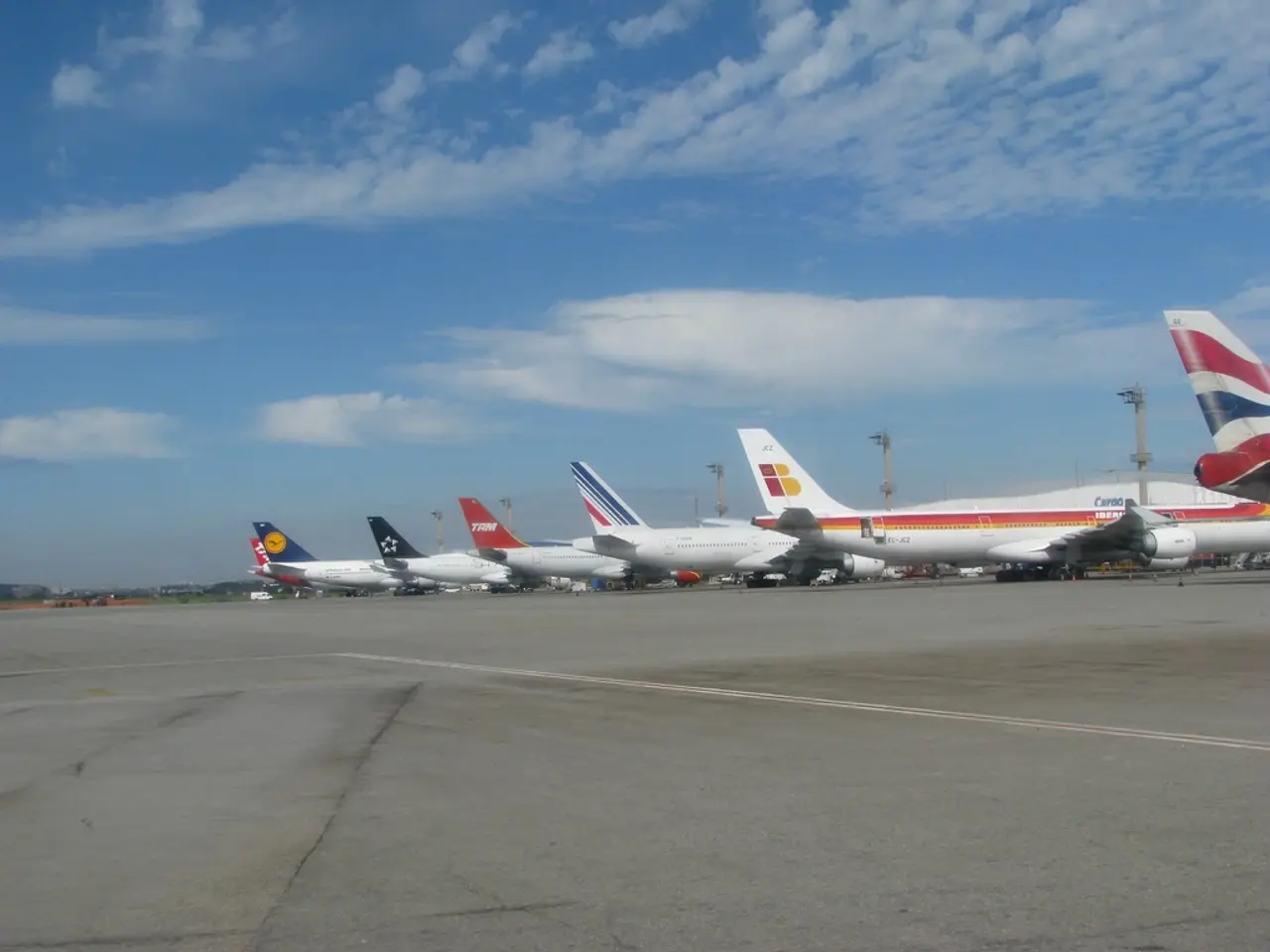BLASTING OFF: AMAZON'S KUIPER CONSTELLATION TO COMPETE WITH SPACEX'S STARLINK
Amazon initiates deployment of Kuiper satellite network, rivaling Starlink internet service
Amazon has taken a giant leap towards its ambitious space endeavor, launching the initial 27 satellites for its Kuiper broadband internet constellation on Monday, April 28, from Florida. This is the beginning of a mission to send over 3,200 satellites into low-Earth orbit, ready to rival the dominance of SpaceX's Starlink.
The launch saw these 27 satellites ride on an Atlas V rocket from the United Launch Alliance (ULA), introduced into space from the Cape Canaveral Space Force Station. Initially scheduled for April 9, the mission was delayed due to bad weather conditions.
Kuiper is a massive bet for Amazon, placed in a market where it competes with SpaceX, global telecommunications providers like AT&T and T-Mobile, and aims to revolutionize connectivity, particularly in rural areas where the service is sparse or entirely absent.
However, the mission has been delayed by more than a year, with Amazon initially hoping for an inaugural launch early in 2024. Following this delayed start, the company is probably seeking to extend the deadline set by the U.S. Federal Communications Commission to deploy 1,618 satellites by mid-2026.
As times and technologies advance, SpaceX, with its unique advantage as both a satellite operator and reusable launch company, has already put over 8,000 Starlink satellites in orbit since 2019. This pace has allowed SpaceX to amass over 5 million internet users across 125 countries, redefining global satellite communications and capturing the interest of military and intelligence agencies.
Amazon Executive Chairman Jeff Bezos remains optimistic about the competition, expressing confidence that Kuiper can match the success of Starlink. He sees the market for these satellite-based internet services remaining unquenchable, stating, "There's room for lots of winners there. I predict Starlink will continue to be successful, and I predict Kuiper will be successful as well."
Leveraging its deep consumer product experience and existing cloud computing business, Amazon believes it has an edge over Starlink. The company has already revealed Kuiper's consumer terminals, designed to communicate with Kuiper satellites overhead. Taking inspiration from their e-book Kindle device, Amazon expects to produce these devices in tens of millions, with a predicted cost below $400 each.
As the competition heats up, it seems the future of satellite internet is on the horizon, offering high-speed connections to consumers, businesses, and government agencies worldwide. With Amazon now entering the fray, the stage is set for one of the most intriguing battles in the satellite internet industry.
1.arguably, the filing by Amazon to deploy over 3,200 satellites for its Kuiper constellation, aiming to rival SpaceX's Starlink, marks a significant advancement in the space-and-astronomy technology sector.
2.Amazon's plans to put these satellites into low-Earth orbit at 7pm on April 28, from Florida, which was initially delayed, signify a substantial stride in the race towards providing billion-dollar broadband internet services.
3.Finance roots play a significant role in this space-and-astronomy competition, as both SpaceX and Amazon seek to expand their reach and establish themselves as key providers in the satellite technology arena.
4.In the world of science, technology, and finance, the competition between Amazon and SpaceX's satellite constellations is arguably a game-changer for the future of global communication, particularly in remote and underserved regions.








